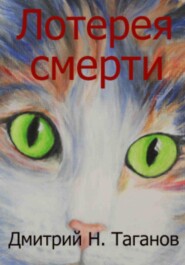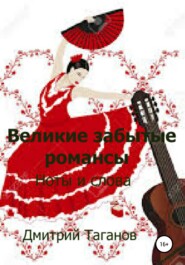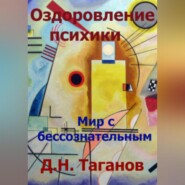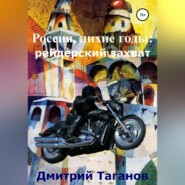По всем вопросам обращайтесь на: info@litportal.ru
(©) 2003-2024.
✖
Русское воскрешение Мэрилин Монро. На 2 языках
Год написания книги
2021
Настройки чтения
Размер шрифта
Высота строк
Поля
– Давно – не давно, а стал.
– Ладно. Только, наверное, он не нашел никого. Сказали мне, что он нанял какого-то легавого или сыщика. Думаю, для этого.
– Ты его видел?
– Нет еще. Завтра, наверно, увижу, на похоронах.
– Ты присмотрись, прощупай его, – как бы эта мелкая сошка нам все невзначай не подпортила.
“Did he find a madman for this job?”
“I don't know and I don't want to know. That homicidal part is strictly your business, and don’t you ever talk with me about it.”
“Since when did you turn into such a saint?”
“Long enough, and please never even mention these things to me.”
“OK, Leo, and don’t you worry too. They say he hired some private detective. I guess for this job.”
“Have you met him?”
“Not yet. Perhaps, I’ll see him tomorrow at the funeral.”
“Probe him, talk to him, we don’t want this sniffer dog spoil us everything.”
Утку ели молча. Ребров опять только поковырял вилкой.
– Что-то ешь ты плохо. Болит? – спросил Левко, не отрываясь от еды и не поднимая головы.
– Аппетита нет.
– Что тебе врач говорит?
– Ничего не говорит.
– Ты хоть спрашивал?
– Когда помру-то? Еще нет.
They ate the duck in silence. Rebrov just pecked his plate with the spoon.
“Why don’t you eat? Does it hurt?” Levko asked going on with his duck, not even looking up.
“No appetite.”
“What does the doctor say?”
“Nothing.”
“Did you really question him?”
“When I die? Not yet.”
Левко знал лучше Реброва, когда тот помрет. Он консультировался об этом у одного известного врача. С теми симптомами цирроза печени, что рассказывал ему Ребров, с его кровотечениями из варикозных вен кишечника, он был уже на последней стадии и должен был умереть через полгода или год. Узнав об этом, Левко не огорчился. Нельзя сказать, что он обрадовался, все-таки он считал себя порядочным человеком. Но и не огорчился. Потому, что Левко давно уже боялся Реброва. Очень боялся. Тот даже ему иногда снился в ночных кошмарах. Про себя он даже называл его «нелюдь».
Levko knew better than his partner when he will certainly die, because he consulted this matter with a renowned doctor. With the symptoms of the cirrhosis of the liver that Rebrov told him once, with the bleedings from the bowel veins, he was already on the last stage of the decease and could live no longer than half a year, but perhaps even less. When Levko was told about it he wasn’t much distressed. He wasn’t glad too, because he considered himself a decent man, but certainly he was not distressed. Levko was afraid of Rebrov for a very long time. He often had nightmares with this man doing something cruel to him. He even called him in his mind nelud, werewolf in Russian, or devil.
Двенадцать лет тому назад, как оказалось только теперь, он недооценил Реброва. Он думал, что сумеет легко поладить, подчинить или разобраться с тем деревенским полуграмотным пареньком. Но тот оказался много круче, чем он думал, и много умнее. И в своем собственном банке Левко никогда уже не чувствовал себя полным хозяином. Потому что знал, видел сам не раз, что у Реброва только один аргумент для врага – смерть. На самом деле, это был весьма обычный аргумент в деловых кругах в те «лихие девяностые».
Twelve years ago, as it was apparent now, he underestimated Rebrov. He thought then that he could easily get along with this illiterate village lad, or bend him down, or at least do away with him any time he wanted to. Levko was wrong. This youngster happened to be much cooler than anyone he ever met before, and very clever. Since then Levko never felt himself a total boss in his bank. The only argument his new partner and security chief ever proposed for all business conflicts was death. In fact, that was quite a common argument in the business circles during those wild ninetieth years.
Ребров не остался ждать десерт, а Левко его не удерживал. Как только тот ушел, Левко кинулся к своим мониторам на столе и впился в них, просматривая все появившиеся за время его отсутствия цифры. Сегодня эти цифры, или, может быть, звезды на небе, были к нему благосклонны. Он, не глядя, нащупал рукой на своем столе всегда валяющиеся тут ключи от своего «Порше», с длинной медной цепочкой на кольце, и накрутил цепочку на свой палец. Эта медная цепочка была особенной, она приносила Левко «счастье». Он заметил это еще лет двадцать назад, когда был уличным валютным менялой. Он тогда впервые в жизни купил машину – «Жигули», и с тех пор всегда, когда стоял на улице, поджидая клиентов, крутил на пальце эту длинную цепочку. Цепочка с ключом от машины была и зримым знаком его растущего статуса, и одновременно некоторой угрозой каждому, кто бы подошел к нему близко с недобрыми намерениями. А такие намерения были вокруг у многих.
Теперь же, не отрывая глаз от цифр, он надел кольцо от ключа на палец и быстро, весело закрутил цепочкой перед своими мониторами.
Rebrov didn't stay for a dessert, and Levko didn't implore him to. The moment he left Levko rushed to his computers and peered into figures appeared there during his absence. Today these figures, or maybe the stars in the sky, were favorable to him. With the eyes on the screens he familiarly groped for a long brass chain with the key of his Porsche, and whirled it around his finger. This cheap brass chain was very special for Levko, because it was bringing him luck. He noticed it twenty years ago when he was a black market money changer on the street. That’s when he bought his first car, secondhand Lada, and since then, standing in the street, waiting for customers, he whirled this brass chain with a car-key around his finger. Car-key was visible sign of his rising status, and a long brass chain was a clear warning to anybody who would approach him with malicious intentions. Many thugs and trumps had such intentions on that street.
Keeping his eyes glued to the figures, Levko quickly and cheerfully twirled the brass chain with a Porsche key in front of the computer screens.
5. Проводы / The Funeral
Из-за окатившего меня по дороге ливня я подъехал на мотоцикле к крематорию немного позже. Пришлось сразу искать туалет, чтобы умыть лицо, забрызганное из-под колес машин. Когда я нашел нужный мне ритуальный зал, все уже были в сборе. Но стояли они еще перед дверьми зала, с букетами цветов, дверь должна была вот-вот открыться.
Because of the heavy rain that showered me on the motorbike, I came to the crematorium later, and at once had to go the men’s room to wash my spattered with dirt face. When I found the assigned ritual hall, all the mourners were there, with bunches of flowers waiting for the doors to be opened.
Многих тут я уже знал, и без слов некоторым покивал головой. Стояло тут человек двадцать. Среди них выделялся один, смуглый лицом, с красном тюрбаном на голове. Несомненно, это был индус из консульства, пришедший официально засвидетельствовать переход в мир иной своего соотечественника. Но меня сразу удивило, что все они, кроме индуса, были только его сослуживцами, из аппарата этой партии, почти всех я видал мельком в коридорах их офиса. Тут не было никого, похожего на близких друзей-сверстников Сережи, на любимых женщин, или на родственников. Одни только сослуживцы. Тем более странно, что он был поэтом, и не просто поэтом, а поразительно похожим двойником. Наконец, открыли дверь и пустили всех в зал.
I saw many familiar faces there and solemnly nodded them. Those were twenty or so men and women I saw in the corridors of the party headquarters, all of them colleagues of the deceased. Although, there was nobody who looked like his relative, or fan, or lover. That seemed quite unnatural to me. After all, this Sergey was a poet, and not just another unhappy poet, but someone bearing striking likeness to the great, long dead Russian genius. One person there attracted my attention, because he wore a red turban on his head. Apparently, he was the Indian Consulate official, to testify the transition of his compatriot to another world. At last, the doors were slowly opened, and the solemn crowd was let inside the ritual hall.
Поэт лежал в открытом гробу, одетый в черный костюм, с белой полоской ткани, с крестом, на лбу. Букеты цветов укладывали внизу, вокруг, и вскоре за ними уже не было видно полированных досок гроба. За его изголовьем, на отдельном высоком постаменте стоял его портрет. Черно-белый и сильно увеличенный. Только позже я пригляделся к нему. «Боже мой!» – я остолбенел: это был не портрет этого бедного безвестного Сережи, а портрет самого Сергея Есенина. Самая известная его фотография, с пробором посередине красивых волос. Пораженный до глубины души, я оглянулся на всех, пришедших проводить его. Они что, не замечали того же! Что это все такое! Но все его сослуживцы так же чинно, траурно стояли вокруг, поглядывая на бледное лицо в гробу, на портрет, на цветы…
Poet lay in casket dressed in a black suit, with a white strip of cloth and a small wooden cross on his forehead. The wreaths and bouquets of flowers were heaped around, and still more was being laid, covering up the polished wood of the coffin.
Just behind the head of deceased his portrait was placed on adjoining pedestal. It was black and white, and extraordinarily enlarged. When I looked at it closer I was just dumbfounded. “My God,” I thought in amazement. “What a bad-taste spectacle!” Because it wasn’t a portrait of the unfortunate poet Sergey from India, but it was the portrait of great Sergey Yesenin himself, his widely known photograph that was made a hundred years ago, with his blond hair parted in the middle. In a deep amazement and shocked to the core, I looked around at the mourners: “Why don’t they notice it, they look like educated people!” All of them now silently and mournfully stood around the coffin, looking at the pale face there, at the portrait, and apparently awaiting for some speeches.
Меня еще вчера удивило, как странно меня вводят в курс дела. Что бы я ни спросил, все они как будто воды в рот набрали. Как будто все у них было государственной тайной.
Ко мне вчера приставили одну высокопоставленную в их партии сотрудницу, товарища Мячеву. Высокую крупную тетю, с копной светлых волос на голове, в безвкусном платье и с громким голосом. У нее еще были очень длинные и ярко красные ногти. Та принесла мне высокую стопку их предвыборных буклетов, листовок, хвалебных книжек и даже учебник истории Коммунистической партии Советского Союза, и попросила для начала ознакомиться со всем этим. Она явно, или в душе, принимала меня за нового кандидата в члены их партии. С чувством, что я теряю зря время, я добросовестно пролистал все это, и даже просмотрел учебник. Ничего, что бы я не знал до этого, я тут не нашел. Те же лозунги, те же призывы, те же заклинания, что и двадцать пять лет назад.
I was also surprised yesterday, being introduced to the subject of my job in the party. Whatever I asked seemed to be the top secret no one had authority to disclose. All the day I was taken care of by the party official of high rank, comrade Myacheva. She was a tall and massive woman with a shock of a blond hair, in a bland dress and with a loud voice. Most noticeable about her were long and red shining nails, warning perhaps of some danger. I was put in some kind of a library, and Myacheva had brought me a pile of their election leaflets, flyers and a complimentary textbook on the history of the Communist Party in this country, and asked me to acquaint myself with it. I think that was a standard procedure for all new members of this party, because she wasn’t sure of my function here. With a feeling that I'm wasting my time in vain, I honestly flipped through all these glossy papers, and even read some pages of textbook, though I knew this embellished party history from my college years, and there was nothing new to me.
Наконец, когда она проходила мимо моего стола с видом учительницы, и строго на меня взглянула, я попросил ее остановиться.
– Я просмотрел, спасибо, очень интересно, – сказал я. – Но, мадам, меня сюда пригласили работать. Потому, что у вас тут скоро что-то произойдет. Что произойдет? Что? Кто мне это скажет?
Сначала ее глаза округлились, как у рассерженной учительницы, но потом вдруг скосили испуганно влево и вправо, будто опасаясь чужих ушей, и даже рука у нее чуть было дернулась испуганным жестом к губам.
Finally, when Myacheva was passing me by in the aisle, looking like a stern school teacher, I addressed her very politely, “Madam, I have acquainted with all these, thank you, but I was invited to work here. I was told there would happen something extraordinary very soon. What’s that? Who will tell me?”













